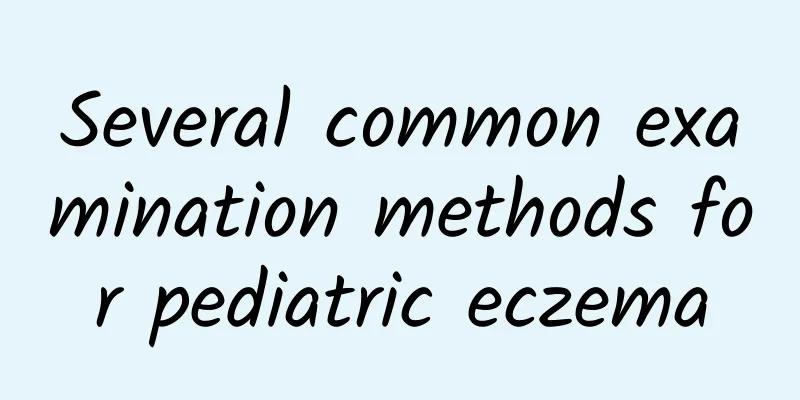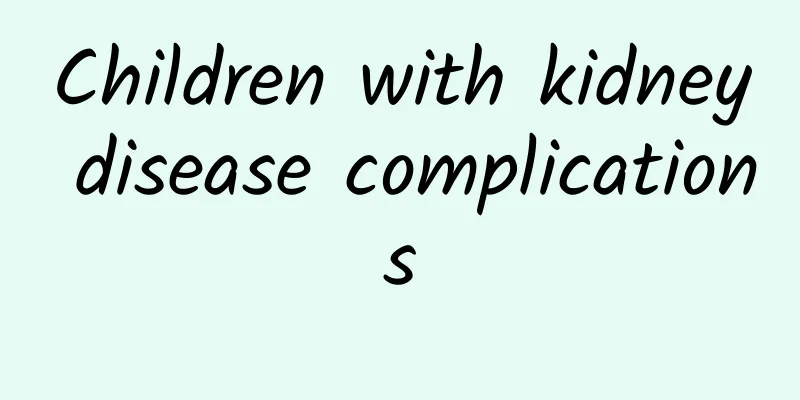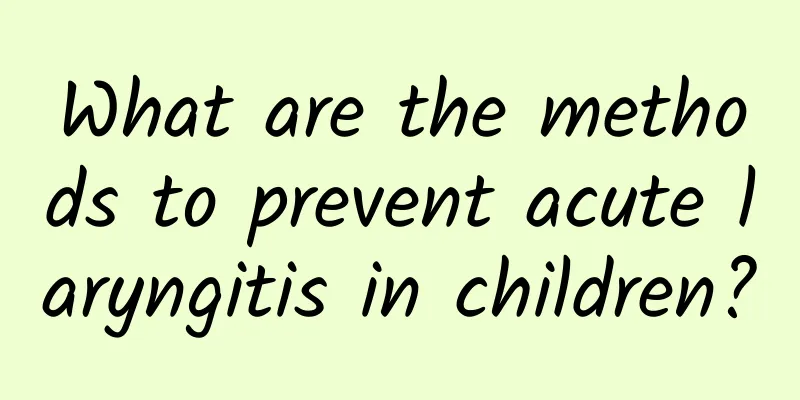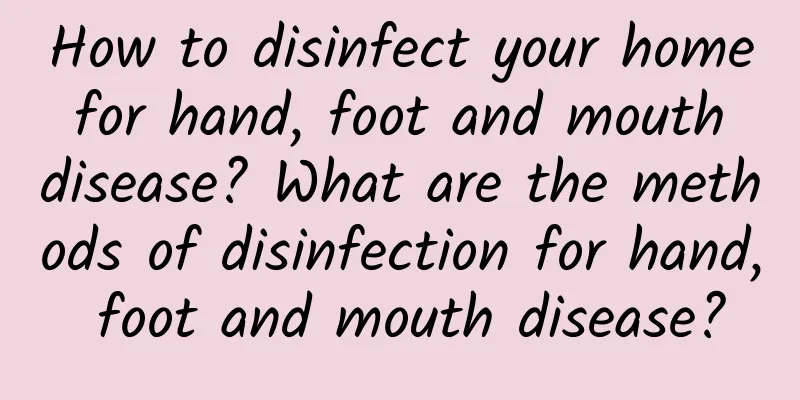Several common examination methods for pediatric eczema

|
Babies are like the apple of their parents' eyes. If something goes wrong with them, parents will be anxious. Childhood eczema is a common inflammatory skin disease of the epidermis and superficial dermis caused by a variety of internal and external factors. So how do parents know if their children have eczema? Let's take a look at some common Methods for examining pediatric eczema. Skin diseases such as baby eczema are still very common. In fact, when facing baby eczema, you still need to consider some necessary examinations. How to check for baby eczema? Sometimes there are still many ways to check. Especially as a young mother, you still need to pay more attention to your child’s skin diseases. Many mothers will be at a loss after discovering that their baby has eczema. They don’t know how to treat the baby. Even going to the hospital for examination will worry that the baby’s body cannot bear it. In fact, when a baby suffers from eczema, he needs to go to the hospital for examination! First of all, infant eczema can be checked physically. Infant eczema usually starts with small red rashes on the cheeks, which soon spread to the forehead, neck, and chest. The small red rashes may turn into small blisters, which will ooze water after breaking, and then form yellow scabs. Acute eczema behind the ears, in the groin, around the anus, and on the chin should be differentiated from intertrigo. The latter often occurs in obese infants, in the summer, or in children with drooling or diarrhea, who do not pay attention to local skin cleaning. Sometimes it needs to be differentiated from contact dermatitis. This disease has a history of contact and the skin damage occurs at the contact site with clear boundaries. Patch testing can be used for differentiation when contact factors are suspected. However, patch testing is often not easy to show in the neonatal period. Second, heredity is an important factor in childhood eczema. Of course, we cannot say that if mom and dad have eczema, the child will also have eczema, or will definitely have eczema. However, if the parents' relatives, such as grandparents, grandparents, and even aunts, uncles, and aunts, have a history of this allergic disease, then their offspring are prone to eczema. In other words, the baby is in a specific constitution, and under this constitution, it is easy to get allergic diseases including eczema. Allergens testing is required. In fact, if the baby suffers from eczema, then the mother's top priority is to find out the cause of the baby's illness. If it is diet, then it should be adjusted according to the baby's physical condition. If it is skin care, then the right method and products should be selected. Only in this way can the baby recover faster. There are still many examinations for infant eczema. In fact, for infants, the skin is very prone to infection. Once an infection occurs, it is necessary to consider some necessary examination measures for infant eczema. In other words, you should know that such examinations are still necessary for infants. I hope the above examinations can determine whether it is infant eczema. |
<<: How to detect eczema in children
>>: How to check for eczema in children
Recommend
What are the preventive measures for acute laryngitis in children?
What are the preventive measures for acute laryng...
Can eczema in children cause fever? Generally not
Children with eczema generally do not cause fever...
What are the medications for mumps in children?
Mumps is a common disease for people, and its inc...
How long does it take to cure breast milk diarrhea?
How long does it take to cure breast milk diarrhe...
What foods are suitable for children to eat after catching a cold? Children should stay away from these foods when they catch a cold
Children have weak resistance and are more likely...
Will acute laryngitis in children always be accompanied by fever?
Will acute laryngitis in children always be accom...
What should I do if my baby has a cough and a runny nose? Can I use peppermint oil on my baby's cough and runny nose?
During the onset of cough and runny nose, the bab...
What are the methods of physical examination for poliomyelitis?
Poliomyelitis, also known as poliomyelitis, is an...
What medicine should children take for cough? How should children take medicine for cough?
When children have a cough, parents will be very ...
Is oseltamivir effective for children with cough and phlegm?
Is oseltamivir effective for children with cough ...
How much does it cost to cure ADHD?
The cost of treating ADHD depends on factors such...
What tests are needed for patent ductus arteriosus
What tests are needed for patent ductus arteriosu...
Research has found that electric mosquito coils are liver toxic? So can electric mosquito coils still be used? This article will tell you
On summer nights, the breeze brings coolness, but...
Can children die from diarrhea?
Diarrhea is a common disease in children. Accordi...
The harm of pneumonia in children to the body
The combination of pneumococcus and influenza vir...









